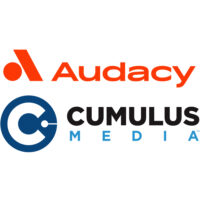
Last night Semafor publicly reported on something that has been whispered for much of the past year; a potential combination of Audacy and Cumulus Media.
While the Semafor story focuses on Soros Fund Management taking a controlling stake in Audacy, it notes that his funds have also taken stakes in Latino Media Network and the Crooked Media podcast network and has held discussions internally or has met with companies such as Cumulus and podcasting companies including Project Brazen, Pushkin Industries, and Lemonada Media.
The potential connection between Audacy and Cumulus dates back to last summer when 5-hour Energy founder Manoj Bhargava purchased 5.15% of Cumulus and acquired $60 million of Audacy’s debt. The former would lead to Cumulus injecting a poison-pill defense mechanism to prevent Bhargava from increasing his stake in the company to 20%. Through his purchase of Audacy’s debt, his company will be the second largest shareholder of the company when it exits Chapter 11 bankruptcy protection.
As Semafor notes, that while Soros’ fund “typically invests in media both to profit and to further what he sees as the democratic values of an open society, one that has put him deeply at odds with a generation of figures on the right, from Hungary’s Viktor Orban to Tucker Carlson,” the investment into Audacy is purely financial “with an eye to an investment win through careful management of the struggling company’s debt.” The way many investment firms see growth is by scaling upwards to eliminate operating inefficiencies, ie. through layoffs.
It is already known that a new Board of Directors elected by the new shareholders will be elected upon Audacy’s exit from Chapter 11 Bankruptcy Protection. There is also growing buzz that many of the company’s senior executives will exit prior of soon after and that significant layoffs are coming to the market and station level by the end of this month.
It is Bhargava’s inclusion in all of this that is growing increasingly worrisome. His company was recently sued by Sports Illustrated owner Authentic Brands Group for $48.75 million in missed payments and damages for infringing on Sports Illustrated’s copyrights and trademarks. Bhargava’s company seized control of The Arena Group last Summer and with it the publishing rights to brands including Sports Illustrated, TheStreet, Parade, and Men’s Journal. New York Magazine’s Daily Intelligencer details the suit in detail with excerpts calling him “a gangster with considerable experience with questionable business practices” and accusing Bhargava of transphobia, racism, and seeking to sabotage the publication. The publication has since had its licensing agreement to publish transferred to Minute Media, who also rehired most of the staff that were to be laid off by the Arena Group.
Should a merger of Audacy and Cumulus eventually come together, the biggest thing to note is that there is less overlap between the companies than you might think.
There are markets where the combined companies could retain all of their properties including Boston (Audacy has 1AM/4FM), Detroit (Audacy has 2AM/4FM, Cumulus has 1AM/1FM), Houston (Audacy has 2AM/4FM, Cumulus 1FM), Los Angeles (Audacy 1AM/5FM, Cumulus 1 AM, Latino Media Network 1 AM) and Providence (Audacy 1 FM, Cumulus 2AM/4FM).
There are also markets where only a couple stations may need to be divested to stay within the FCC’s ownership limits. In Atlanta, only one FM would need to go between Audacy’s 1AM/3FM cluster and Cumulus’ 3 FMs. Buffalo would only have to eliminate 1 FM between the companies in addition to three AMs. In Minneapolis/St. Paul, only two of the rimshots from the “Love 105” trimulcast would have to go. And in Washington DC, only one FM would need to be divested and already Audacy has one leased to a third-party in 99.1 WDCH.
That leaves just eight full clusters from one company or the other that all or most would need to be spun-off: Chattanooga, Chicago, Dallas, Kansas City, Memphis, New Orleans, San Francisco, and Scranton/Wilkes-Barre. And it should be noted that of those eight, three of them are among the largest markets where iHeartMedia does not have any properties.
This story first appeared on radioinsight.com
